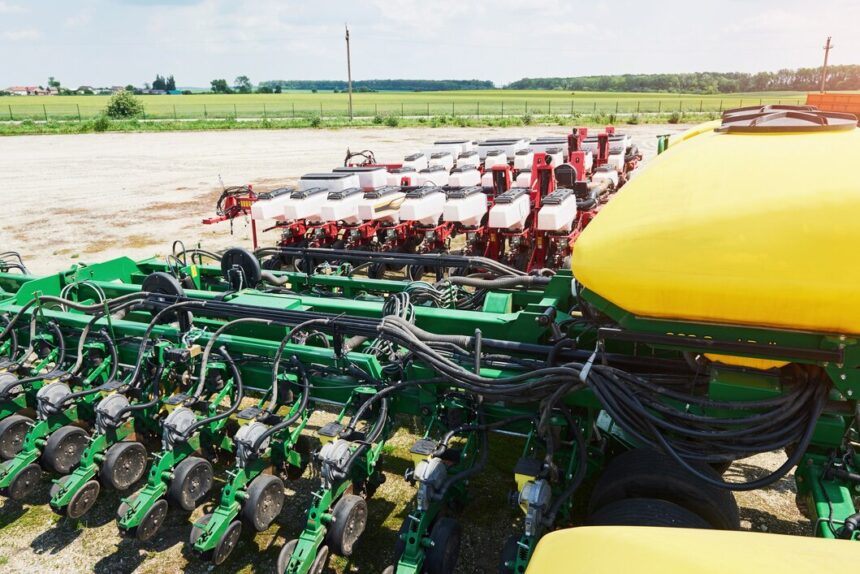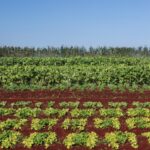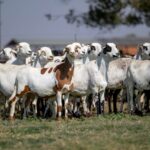Farm mechanization is a critical factor in modern agriculture, helping farmers enhance productivity, reduce labor costs, and improve overall efficiency. For South African farmers, choosing the right equipment is essential to staying competitive in a dynamic agricultural landscape. With an abundance of machinery on the market, it’s important to understand your farm’s unique needs, the costs involved, and the long-term benefits. Here’s a guide to help South African farmers make informed decisions when selecting the right equipment for farm mechanization.
1. Assess Your Farm’s Specific Needs
Before purchasing any machinery, assess your farm’s operational needs. Are you primarily focused on crop farming or livestock? Do you operate on a small-scale, commercial, or subsistence level? For crop farming, you may require tractors, plows, seeders, and harvesters, while livestock farmers might need equipment for feeding, milking, and manure handling. Understanding the specific demands of your farm will help you make more targeted investments in the right machinery.
2. Consider Farm Size and Terrain
The size of your farm and its terrain are critical factors in selecting appropriate machinery. A large commercial farm will require high-powered tractors, large-scale harvesters, and advanced irrigation systems. Smaller farms, on the other hand, may benefit from multi-functional machines that can handle various tasks, such as compact tractors. Additionally, farms with hilly or uneven terrain may need specialized equipment designed to operate efficiently in those conditions.
3. Invest in Versatile Machinery
Purchasing versatile machinery can help maximize your investment. For example, a tractor that can be used with multiple attachments—like plows, seeders, sprayers, and mowers—can handle a variety of tasks throughout the farming season. Investing in multi-purpose equipment reduces the need to purchase separate machines, helping to save money while maintaining flexibility on the farm.
4. Evaluate Energy Efficiency
Energy costs are a significant factor in farm operations. When selecting equipment, prioritize energy-efficient machines that help reduce fuel consumption and operational costs. South African farmers can benefit from investing in equipment with advanced technology, such as precision farming systems or GPS-guided tractors, which improve fuel efficiency while optimizing resource use. This is particularly important in a country where energy and fuel costs continue to rise.
5. Prioritize Equipment Durability and Reliability
Farm machinery is a long-term investment, so it’s essential to prioritize durability and reliability. Look for well-established brands with a track record of producing durable, long-lasting equipment. Additionally, evaluate the availability of spare parts and service support in your region. In South Africa, where rural areas often face logistical challenges, access to reliable maintenance services and spare parts is crucial to minimizing downtime during critical farming periods.
6. Factor in Labour Reduction
One of the main benefits of mechanization is reducing manual labor, especially in areas with labor shortages or high wage demands. Investing in automated or semi-automated equipment can significantly cut down the number of laborers needed on your farm. For example, mechanical harvesters can speed up the harvesting process, while automated irrigation systems reduce the need for constant manual adjustments. By reducing labor costs, farm mechanization can improve profitability in the long run.
7. Understand Financing and Leasing Options
Farm machinery can be expensive, especially for small-scale or emerging farmers. However, various financing and leasing options are available to help manage the upfront costs. In South Africa, institutions such as the Land Bank and private sector lenders provide loans tailored to agribusiness needs. Additionally, leasing or renting equipment may be a cost-effective option for farmers who need machinery only during certain periods of the year, such as harvest time.
8. Adapt to Technological Advances
Technological innovation in agriculture is rapidly evolving, and South African farmers should aim to stay updated with the latest advancements. Precision farming technologies, for example, are transforming how farmers manage crops and resources. Equipment such as GPS-guided tractors and drones can help optimize field operations, reduce input costs, and increase yields. Investing in smart technology not only improves efficiency but also ensures that your farm remains competitive in the modern market.
9. Consider Environmental Impact
Sustainable farming practices are gaining traction globally, and South African farmers are no exception. When choosing farm equipment, consider the environmental impact of your operations. Equipment that reduces soil compaction, minimizes waste, and conserves water is essential in promoting long-term sustainability. Additionally, renewable energy-powered machines, such as solar-powered irrigation systems, can reduce dependency on fossil fuels while benefiting the environment.
10. Seek Expert Advice and Support
Choosing the right farm equipment can be overwhelming, especially given the variety of options on the market. It’s important to consult with agricultural experts, extension officers, and other farmers to make informed decisions. Organizations like Agri SA, Grain SA, and regional agricultural cooperatives offer valuable resources and guidance on selecting appropriate machinery. Farmers can also attend agricultural trade shows, such as Nampo Harvest Day, to explore the latest equipment and technology available in South Africa.
Farm mechanization is key to improving efficiency and productivity in South African agriculture. However, choosing the right equipment requires careful planning, taking into account the specific needs of your farm, energy efficiency, durability, and financing options. By making informed decisions and investing in versatile, reliable machinery, South African farmers can enhance their operations, reduce labor costs, and promote sustainable farming practices for long-term success.
Join 'Farmers Mag' WhatsApp Channel
Get the latest Farming news and tips delivered straight to your WhatsApp
CLICK HERE TO JOIN






